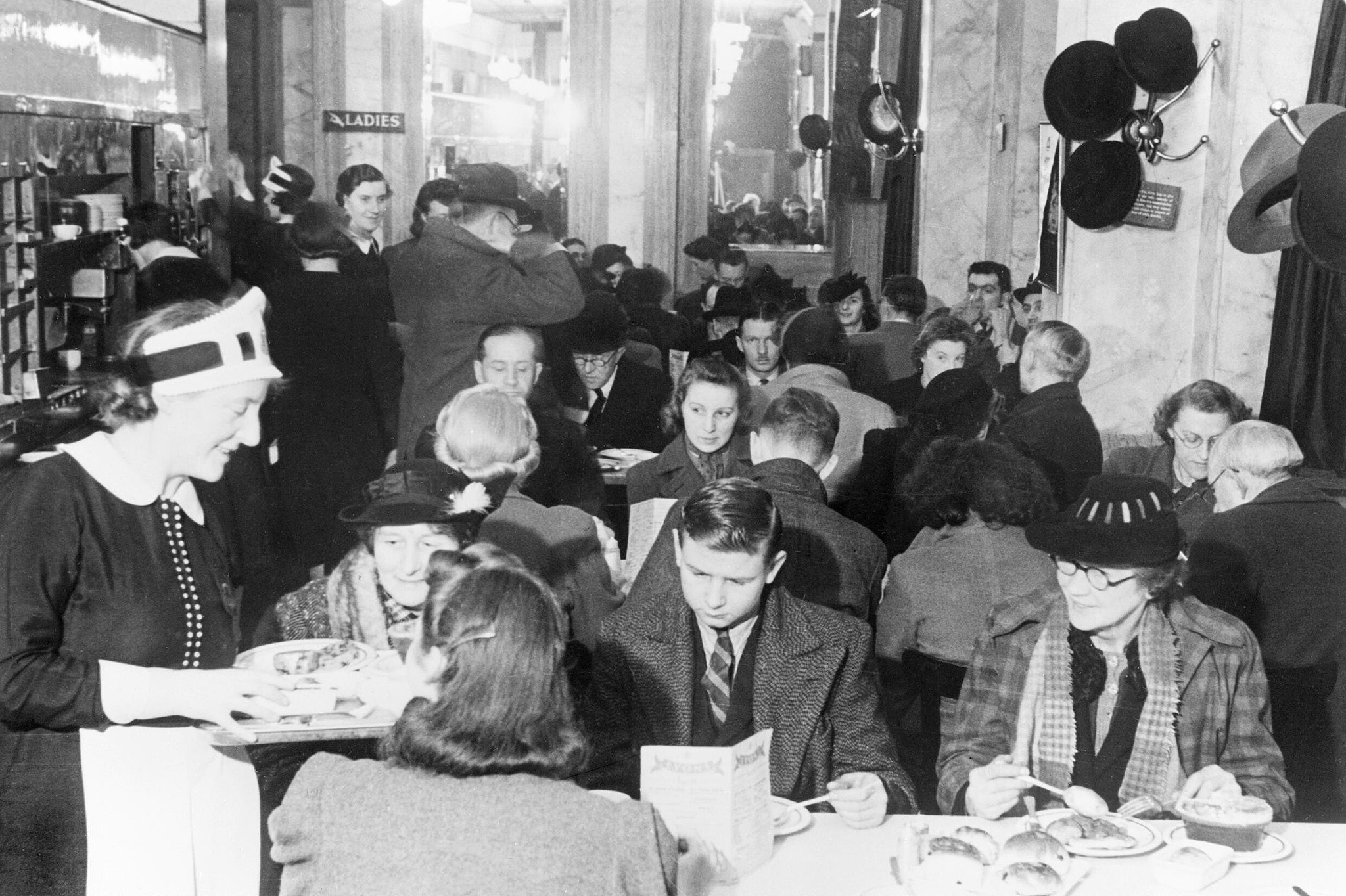A Cup of History: The J. Lyons & Co. Story
Posted by Emily on 21st Apr 2024 Reading Time:
J. Lyons & Co., founded in 1884 by Joseph Lyons and his brothers-in-law, Isidore and Montague Gluckstein, emerged from a tobacco business background. They made their first foray into the catering industry by providing services for the Newcastle Exhibition 1887. This marked the beginning of their transformation into one of Europe's largest food empires.
 Ministry of Information Photo Division Photographer, Public domain, via Wikimedia Commons
Ministry of Information Photo Division Photographer, Public domain, via Wikimedia Commons
The first Lyons teashop opened in Piccadilly, London, in 1894, setting a new standard for affordable and elegant dining. These teashops, known for their consistent quality and pricing, catered to a growing market of working women and offered an alternative to traditional service jobs. By the early 20th century, Lyons had expanded to include the iconic Corner Houses, which provided a variety of dining experiences across several floors and became renowned for their Art Deco style.
A significant cultural impact of Lyons was the introduction of the 'Nippy' waitress in 1925. The term 'Nippy', chosen to convey speed and efficiency, became synonymous with Lyons' waitresses, known for their quick service and pleasant demeanour. This branding was part of a broader modernisation effort, which included updated uniforms and the allowance of contemporary hairstyles like bobbed hair.
 Ministry of Information Photo Division Photographer, Public domain, via Wikimedia Commons
Ministry of Information Photo Division Photographer, Public domain, via Wikimedia Commons
Lyons' growth continued through innovative business practices, including vertical integration, which allowed them to control the entire supply chain from production to retail. Their pioneering spirit was also evident in the adoption of technology; they were early users of computers in business with the development of the LEO (Lyons Electronic Office) in 1951, a move that revolutionised business administrative processes.
The post-war years saw Lyons continue to expand, entering the American market, diversifying into ice cream with the acquisition of Baskin-Robbins, and developing fast food with Wimpy and Dunkin' Donuts. However, the 1970s brought challenges. Overexpansion and a financial crisis triggered by the oil shock led to financial difficulties. Despite efforts to stabilise the company through strategic divestitures and new acquisitions, such as Tetley Tea, Lyons could not maintain its standing.
 The wub, CC BY-SA 4.0, via Wikimedia Commons
The wub, CC BY-SA 4.0, via Wikimedia Commons
In 1978, Lyons was acquired by Allied Breweries, marking the end of its independence. The subsequent years saw the gradual dissolution of its various parts, sold off to pay for other business ventures. By the mid-1990s, the once-dominant company had faded significantly, with only a few branded products remaining on supermarket shelves.
Today, J. Lyons & Co.'s legacy is remembered for its significant contributions to the British food and hospitality industry and its pioneering use of technology in business. Lyons's story is a testament to the potential of visionary entrepreneurship and the harsh realities of economic shifts and market dynamics.

